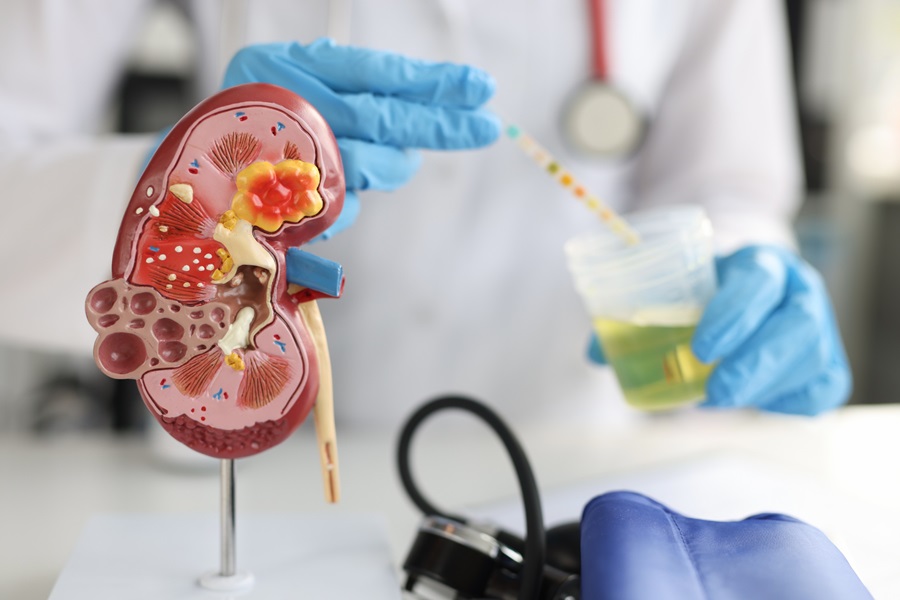Cells Harvested From Urine to Enable Earlier Kidney Disease Detection
Posted on 20 Mar 2024
Detecting kidney disease late can lead to severe and even life-threatening issues. Now, new research has found that the genes expressed in human cells harvested from urine closely match those in the kidney, suggesting that these cells could offer a non-invasive approach to better understanding kidney health. This discovery could allow the diagnosis of kidney problems without doing biopsies, making it possible to detect kidney disease earlier and more easily.
A team of scientists led by the University of Manchester (Manchester, UK) used a method called transcriptomics to measure the levels of about 20,000 genes in each cellular sediment sample of urine. Transcriptomics helps scientists see which genes are active or inactive, providing insights into how cells adapt to changes in their environment. This molecular-level understanding can lead to more accurate diagnoses and better patient outcomes. The team also had access to the world's largest collection of human kidney samples from surgeries or biopsies, known as the Human Kidney Tissue Resource, at the University of Manchester.

The researchers used advanced computational methods to extract both DNA and RNA from the samples and analyze data from previous large-scale studies on blood pressure. They discovered that a low level of a particular gene in the kidney could be a cause of high blood pressure. This gene, ENPEP, produces an enzyme called aminopeptidase and is crucial for blood pressure regulation. It was among the 399 genes identified in the study whose levels in the kidney have a direct impact on blood pressure readings.
“This study shows that using cutting edge technology we are able to combine different unique datasets together using genetics as a connector,” said Professor Maciej Tomaszewski, Chair of Cardiovascular Medicine at The University of Manchester, who led the study. “One of the most exciting findings of that is we discover how cells harvested from urine have the potential to provide a glimpse into the molecular operation of the human kidney. That gives us an exciting avenue of research for non-invasive diagnostic testing.”
“There is a well-known link between the heart and the kidneys in regulating blood pressure,” said Professor Bryan Williams, Chief Scientific and Medical Officer at the British Heart Foundation which funded the study. “This study uses cutting-edge scientific techniques to analyze genes present in kidney cells that are normally expelled in the urine. Analyzing these cells could reveal which genes may be playing a key role in people with high blood pressure, and could potentially offer clinicians a new, non-invasive way to help diagnose those with kidney disease early on.”
Related Links:
University of Manchester














